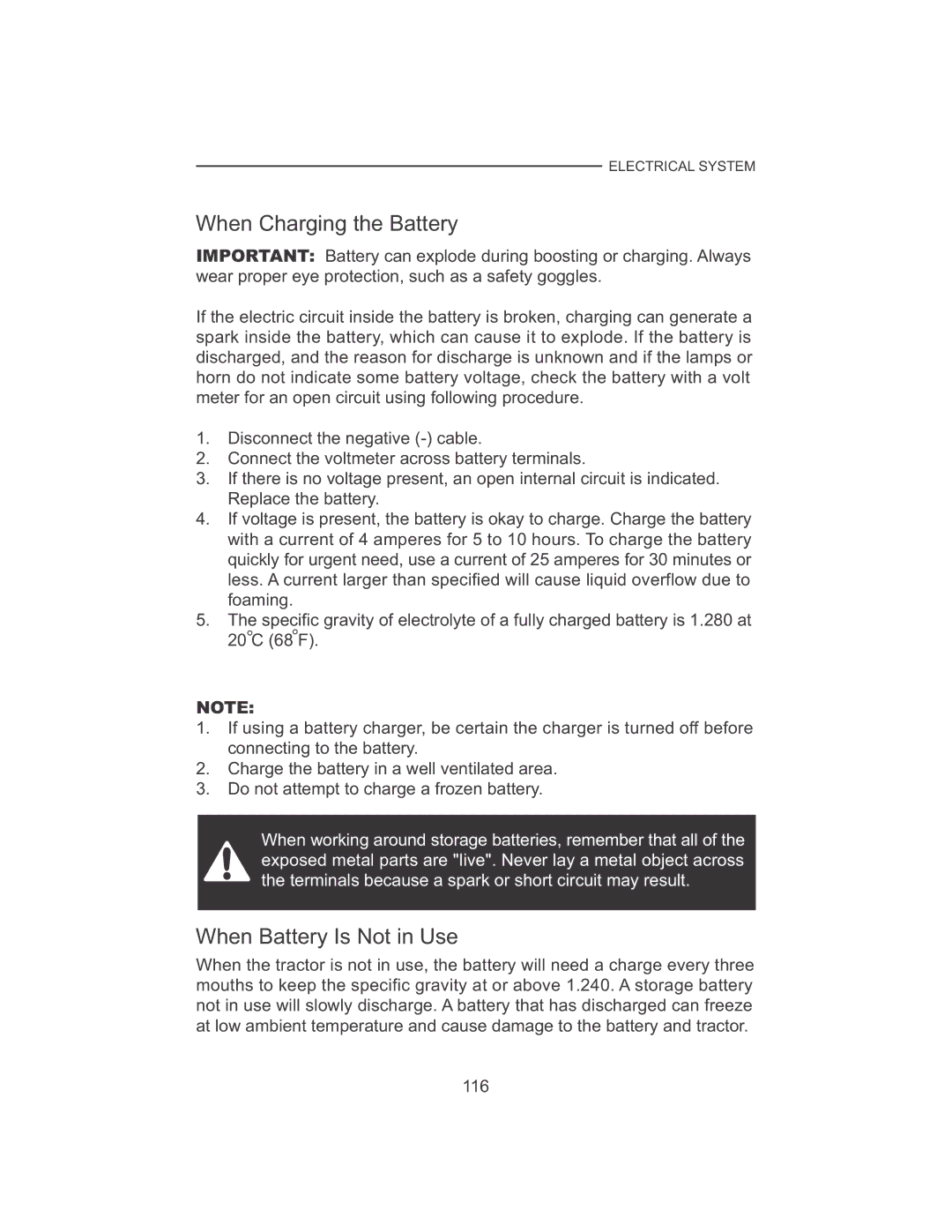
ELECTRICAL SYSTEM
When Charging the Battery
IMPORTANT: Battery can explode during boosting or charging. Always wear proper eye protection, such as a safety goggles.
If the electric circuit inside the battery is broken, charging can generate a spark inside the battery, which can cause it to explode. If the battery is discharged, and the reason for discharge is unknown and if the lamps or horn do not indicate some battery voltage, check the battery with a volt meter for an open circuit using following procedure.
1.Disconnect the negative
2.Connect the voltmeter across battery terminals.
3.If there is no voltage present, an open internal circuit is indicated. Replace the battery.
4.If voltage is present, the battery is okay to charge. Charge the battery with a current of 4 amperes for 5 to 10 hours. To charge the battery quickly for urgent need, use a current of 25 amperes for 30 minutes or less. A current larger than specified will cause liquid overflow due to foaming.
5.The specific gravity of electrolyte of a fully charged battery is 1.280 at 20 C (68 F).
NOTE:
1.If using a battery charger, be certain the charger is turned off before connecting to the battery.
2.Charge the battery in a well ventilated area.
3.Do not attempt to charge a frozen battery.
When working around storage batteries, remember that all of the exposed metal parts are "live". Never lay a metal object across the terminals because a spark or short circuit may result.
When Battery Is Not in Use
When the tractor is not in use, the battery will need a charge every three mouths to keep the specific gravity at or above 1.240. A storage battery not in use will slowly discharge. A battery that has discharged can freeze at low ambient temperature and cause damage to the battery and tractor.
116
